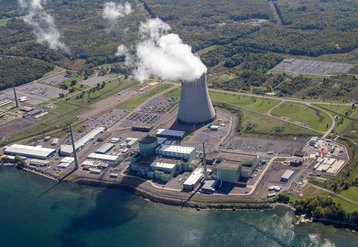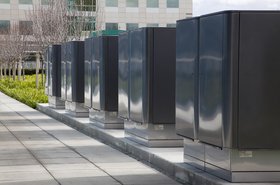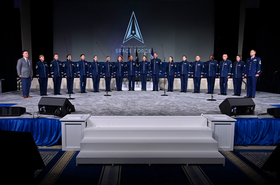Microsoft has signed an agreement with nuclear power producer Constellation Energy, to bring a data center in Boydton Virginia closer to operating on 100 percent carbon-free energy round the clock.
The Boydton facility will receive up to 35 percent in "environmental attributes" based on Constellation's nuclear power production, which will complement Microsoft's recent wind and solar energy purchases to put the data center very close to 100 percent carbon-free electricity 24/7.
Constellation is the largest provider of carbon-free energy (CFE) in the US, with 86 percent of its output coming from the 15 nuclear power stations it owns across the US.
None of these nuclear plants are in Virginia, but the company uses a CFE matching platform to account for energy used and match it with energy produced at another location. The CFE matching service is based on Microsoft's Azure cloud.
Many companies use Power Purchase Agreements (PPAs) to match their fossil-energy consumption with clean energy provided to the grid. However, the energy procured is often produced elsewhere, at a different time of day, month, or even year.
Some companies have falsely claimed to have approached net-zero carbon by balancing power this way, and others like Microsoft have bought multiple renewable certificates in an attempt to cover more hours of fossil energy. This means that there is little incentive to produce more renewable energy where it is needed.
Several vendors are experimenting with 24/7 energy matching, including Microsoft, Iron Mountain, and Norway's Bulk. Google has said it plans to shift to 24/7 clean energy by 2030.
Constellation says the deal proves that hourly, regional matching of clean energy to demand is both possible today.
“Constellation and Microsoft have been working collaboratively for several years to pioneer this technology, so it is fitting that Microsoft is one of our first hourly CFE matching customers,” said Jim McHugh, executive vice president and chief commercial officer. “We are confident this agreement will demonstrate the value and impact of hourly matching in the fight to address the climate crisis.”
“Microsoft is proud to offer technology that enables other climate-conscious companies to also reduce their carbon footprint,” said Adrian Anderson, general manager of renewable and carbon-free energy at Microsoft. “Our collaboration with Constellation makes real-time matching of regional clean power generation and demand available to all companies that want to advance the energy transition.”
Microsoft's Boydton campus was first announced in 2010 and built at the cost of nearly $500 million – at the time hailed as the largest economic investment in Southern Virginia history. It was expanded repeatedly, first in 2011, then in 2013, 2014, 2015, and 2016.
Microsoft has previously signed a nuclear carbon credits deal with Ontario Power Generation for its operations in Canada, and recently signed an energy agreement deal with nuclear fusion startup Helion (though doubts remain on the latter's ability to deliver by the announced date, if at all).






